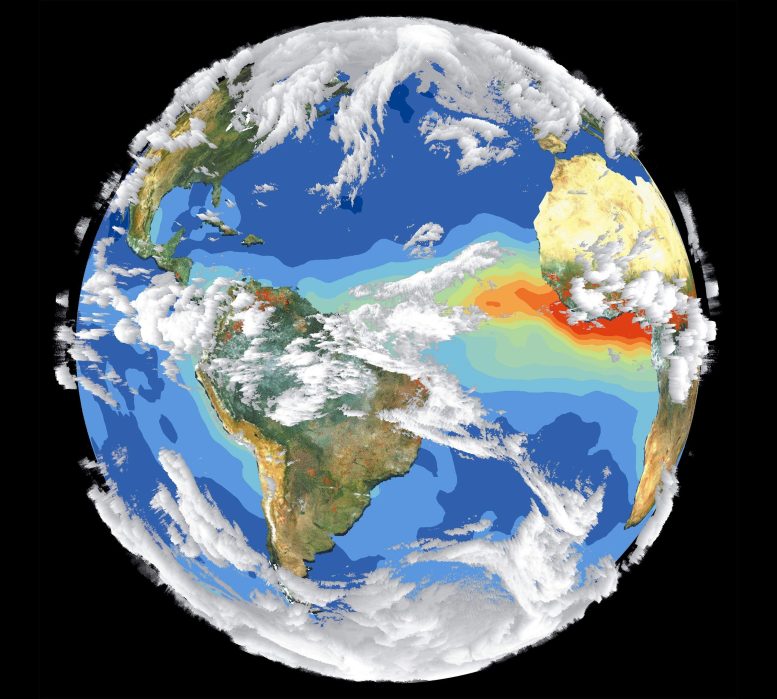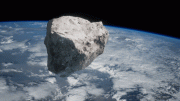
Climate change refers to the long-term shift in average weather patterns and conditions that have come to define Earth’s local and global climates. Climate change is a global issue that has far-reaching environmental, social, and economic consequences, and addressing it requires a coordinated effort on the part of individuals, communities, and governments around the world. Credit: NASA
Why does climate change matter?
Well, it’s happening. We look at the Earth from space and we measure it on the ground. And what we see is that the planet’s climate is changing. The last years have been the warmest since modern record-keeping began.
It’s serious. Even a little change in temperature can have big effects. And we’re seeing some of those effects now. Sea levels are rising. We’re seeing more extreme events like heatwaves and heavy rainfall and wildfire. And we know that a lot of those effects are going to increase with more warming. These changes are impacting decisions that some people make every day, like a farmer thinking about what crops to grow or a homeowner thinking about flood risk.
But there’s hope. There are scientists at NASA and around the world that are researching this. We know more about our planet than we have ever before, and we learn more every day.
Why does climate change matter? Because it’s happening and we’re already feeling its effects around the world. But there’s hope. NASA Chief Scientist and Senior Climate Advisor Dr. Kate Calvin explains how NASA collects data and develops tools that can help us better understand and prepare for climate change. Credit: NASA
So we know why climate is changing. We know that it’s due to increasing greenhouse gases from human activity. We also have tools that can help us better understand and better prepare for future climate change. So we develop computer models that help us understand how much it might change in the future. And we’re also developing technologies here at NASA and around the world that can help us limit future warming or respond to the warming that we’re experiencing.
So why does climate change matter? It’s real. It’s serious, and it’s here.
We Asked a NASA Expert Video Series
- Why is Venus Called Earth’s Evil Twin?
- Is NASA Really Crashing a Spacecraft Into an Asteroid?
- Is NASA Aware of Any Earth-Threatening Asteroids?
- When Was the Last Time an Asteroid Hit Earth?
- How Did Perseverance Mars Rover Pick Its Landing Spot?
- What if an Asteroid Was Going To Hit Earth?
- Did Mars Ever Look Like Earth?
- What Are Lagrange Points?
- What Are the Trojan Asteroids?
- Is There Oxygen on Mars?
- Does NASA Know About All the Asteroids?
- Do Aliens Exist?
- Is There Weather on Mars?
- Will an Asteroid Ever Hit Earth?
- Is Mars Habitable?
- Could Microbes Survive a Trip to Mars?









This article reads like AI-generated gibberish. The first sentence and paragraph is repeated in the fourth or last paragraph and sentence. Meanwhile, NASA doesn’t know or care; you don’t ask a space engineer or an astrophysicist or an astronaut about the impact of change on a climate. Even if you ask a climatologist, they’ll tell you that climate changes. All NASA can tell you is their satellite data shows climate is changing, which it always does, which is why climate is a term limited to 30 years.
A change in climate is inconvenient and disruptive. If you grow something somewhere, maybe someday you won’t be able to. Maybe it’ll grow somewhere it never could. Water may be where it wasn’t, and not be where it was. The infrastructure you build may not match or handle the weather of a different climate, so a sewer may not take all the rainfall, or a house may not be insulated against colder weather. NASA has nothing to do with that, so go ask an economist, a land developer, or a farmer.
By the way, “more extreme events like heatwaves and heavy rainfall and wildfire. And we know…(it’s) going to increase”, no you don’t know. All you know is a chatoic system is changing. You have no idea what altered inputs will do to the output of this black box.
“The last years have been the warmest since modern record-keeping began.”
Actually, there has been not statistically significant warming for over 8 years. Assuming, for the sake of the argument, that there is longer term warming, it should be noted that Earth has been warming since the peak of the last continental glaciation about 20,000 years ago; we are currently living in what is known as an “interglacial.” Consequently, sea level has risen significantly over the last 15,000 years, with a remarkably constant rise in the last 8,000.
There is a common perception that extreme weather events are more severe and frequent than formerly. The perception is not well supported with evidence. It may just be a a subjective impression resulting from modern satellite coverage, instantaneous communication of world events, and a larger world population resulting in more loss of life and property.
Yes, ‘climate change’ is here. However, it has always been present. Change is what climate does. It is naive to think that climate should be static.
I agree that down through the ages the weather has always varied and not many scientist can predict when weather will change.man may have an effect on the weather but the weather will always be shifting back and forth and no one actually knows what will take place. There was a seer back in the 40,s that said the earth had flipped over many times from north to south. His predictions were almost 100% and all this info came from his subconscious mind as he went into a trance state. Most inventions come from our sub onions mind! That tell us slot about the power of our minds! Thank you.
The word alot, not slot!the computer adds word when it shouldn’t.